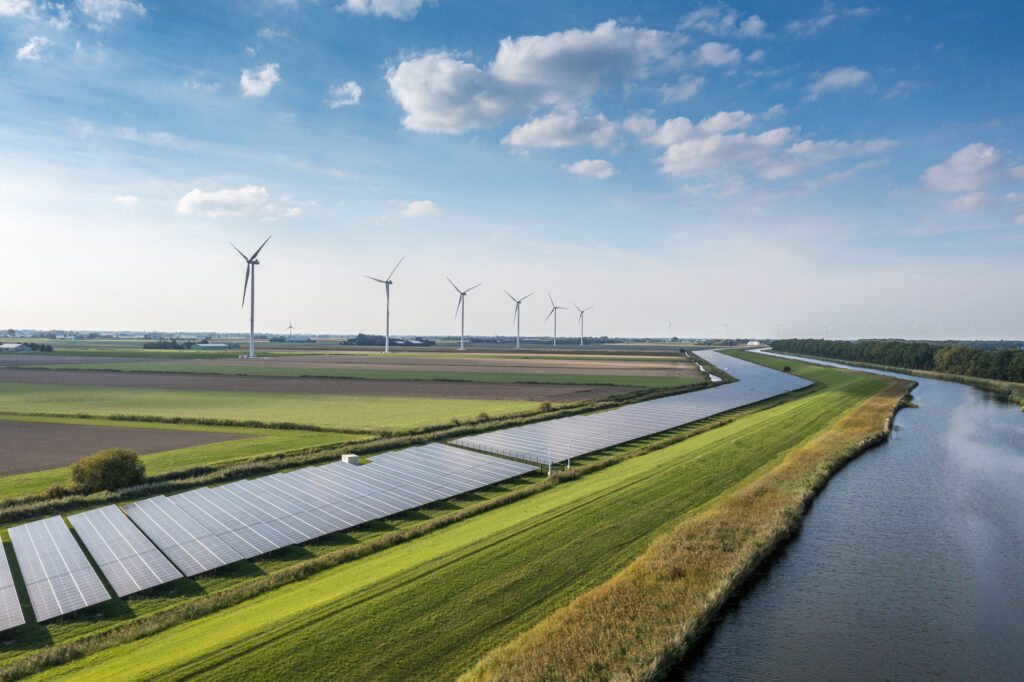What is the Green Gas Support Scheme (GGSS)?
As part of the UK Government’s target to reduce greenhouse emissions to net zero by 2050, it is introducing the GGSS this November. The draft Green Gas Support Scheme Regulations 2021 (“the Draft Regulations”), which establishes the GGSS in Great Britain, were laid before Parliament on 9 September 2021.
The GGSS will be administered by Ofgem and will replace the Non-Domestic Renewable Heat Incentive scheme which makes regular payments, for 20 years, to individuals and organisations that inject biomethane (which is gas derived from organic matter such as agricultural materials and waste, food waste, manure, sewerage etc.) into the gas grid and which, subject to prescribed extensions, closed to new applicants on 31 March 2021.
The GGSS aims to provide financial incentives to producers of biomethane from anaerobic digestion (AD), encouraging the deployment of new AD biomethane plants to increase the proportion of green gas in the gas grid.
The GGSS is specifically targeted to producers of biomethane from anaerobic digestion for injection into the gas grid. It will not support other technologies – eg process heating, biogas combustion, solar thermal, hybrid heat pumps, heat networks and production of hydrogen.
Biomethane producers must produce a minimum of 50% of biomethane (by energy content) using waste or residue feedstocks (which have higher carbon savings and a lower environmental impact on soil and quality than bioenergy crops). Gas produced from landfill will not qualify for support under the GGSS.
Prospective applicants will need to submit a detailed application to Ofgem, along with supporting information including, amongst other things, details of their organisation, the date on which injection of biomethane will commence, the location of the AD plant and grid injection point, a description of the equipment used to produce biomethane, details of feedstock and the volume (in cubic metres) which the biomethane producer intends to inject into the gas grid each year.
How long will the GGSS last?
The draft regulations provide for the GGSS to run until 31 March 2040. However, the final date on which biomethane producers can be registered under the GGSS is 30 November 2025.
How will the GGSS be funded?
It will be funded by a levy on all licensed gas suppliers which will be administered by Ofgem.
The levy will be calculated on the basis of a pence per meter point per day basis and will be set in advance by Ofgem in January of each year (taking into consideration the GGSS budget cap for the upcoming year plus headroom and the associated administration costs for the GGSS and Green Gas Levy and any underspend from the previous year). Gas suppliers will be charged quarterly levy payments according to the number of meter points they serve. However, the Government intends, in due course, to move to a volumetric levy design.
It is expected that gas suppliers will pass through the costs of the levy to domestic and non-domestic end users. However, it is estimated that increases in gas bills for consumers will be minimal.
The first levy payment (based on the prescribed tariffs) is due by gas suppliers in April 2022 with subsequent levy payments being collected quarterly.
Gas suppliers will be exempt from paying the levy in any year if Ofgem determines that at least 95% of their gas portfolio comes from biomethane that is certified by a certification scheme approved by the Secretary of State. If Ofgem subsequently determines that a biomethane producer is not exempt, Ofgem can require that it makes a backdated levy payment for that year.
Gas suppliers must arrange credit cover as specified by Ofgem for each of their quarterly levy payments. The amount of the credit cover may differ from supplier to supplier. Ofgem will make an assessment based on, amongst other things, the number of meter points such gas supplier is serving or is due to supply the following year.
Gas suppliers must comply with certain obligations including obligations to provide Ofgem with information. If a gas supplier does not pay its levy payments and there is insufficient credit cover from such defaulting gas supplier, Ofgem can carry out a mutualisation process whereby the outstanding amount is recovered from non-defaulting gas suppliers participating in the GGSS. The draft regulations also provide for Ofgem to serve penalty notices where a gas supplier is in breach of its obligations under them, for financial penalties of up to 10% of a gas supplier’s annual turnover to be imposed, and for unpaid amounts to be recovered as a civil debt.
The costs of the GGSS will be managed by introducing an annual overall scheme expenditure budget cap, an annual tariff guarantee budget cap (beyond which the scheme closes until the next financial year) and a quarterly degression mechanism to reduce tariffs as costs reduce. Tariffs will not degress in the first six months of the GGSS. After the first six months, a 10% degression on the tariff will happen if forecast expenditure thresholds are breached. Degression thresholds will be published before the GGSS launches.
Tariff guarantees for biomethane producers
Upon being successfully registered for the GGSS, biomethane producers will be entitled to receive tariff payments for 15 years.
There will be three tiers of tariffs to reflect the cost of producing biomethane at different scales:
Tariff Limit (megawatt hours (MWh) Level p/kilowatt hour (kWh)
Tier 1 The first 60,000 MWh of eligible biomethane 5.51
Tier 2 The next 40,000 MWh of eligible biomethane 3.53
Tier 3 The remaining eligible biomethane 1.56
The tariffs will only be made for biomethane injected into the gas grid.
The tariffs will be subject to an annual review, following which, they can be lowered, raised or maintained. One month’s notice will be given of any changes to tariffs.
Biomethane producers must comply with certain obligations eg keeping records on the type of feedstock used, provision of information, complying with registration provisions, providing access rights for Ofgem to inspect equipment, and obligations to submit independent sustainability audit reports to Ofgem. Biomethane producers must also notify and keep Ofgem informed of any change in its circumstances (eg if it is no longer able to comply with any of its requirements or where there is a change of producer).
Biomethane producers’ sustainability requirements
Upon being successfully registered for the GGSS, biomethane producers will be entitled to receive tariff payments for 15 years.
There will be three tiers of tariffs to reflect the cost of producing biomethane at different scales:
Tariff Limit (megawatt hours (MWh) Level p/kilowatt hour (kWh)
Tier 1 The first 60,000 MWh of eligible biomethane 5.51
Tier 2 The next 40,000 MWh of eligible biomethane 3.53
Tier 3 The remaining eligible biomethane 1.56
The tariffs will only be made for biomethane injected into the gas grid.
The tariffs will be subject to an annual review, following which, they can be lowered, raised or maintained. One month’s notice will be given of any changes to tariffs.
Biomethane producers must comply with certain obligations eg keeping records on the type of feedstock used, provision of information, complying with registration provisions, providing access rights for Ofgem to inspect equipment, and obligations to submit independent sustainability audit reports to Ofgem. Biomethane producers must also notify and keep Ofgem informed of any change in its circumstances (eg if it is no longer able to comply with any of its requirements or where there is a change of producer).
Additional Capacity
Existing participating biomethane producers will be able to add additional capacity if such additional capacity is in operation by Autumn 2025.
Transfer of biomethane production plants and GGSS payments
The Government proposes to implement a mechanism to allow the transfer of registration of biomethane production between parties – enabling biogas production plants to be bought and sold and GGSS payments to be transferred.
Sanctions against biomethane producers for non-compliance
The draft regulations provide for Ofgem to take action if a biomethane producer fails to comply with an ongoing obligation or was registered as a participant on the basis of information which is incorrect. Ofgem will be entitled to conduct investigations, withhold or reduce a biomethane producer’s support payments, revoke its registration, correct the level of tariff being paid to it and recover any overpayment of periodic support payments.
Guarantees of Origin
Biomethane producers will not need to surrender gas Guarantees of Origin (GOOs). This means that the GGSS will not be compliant with the sustainability criteria in the EU Renewable Energy Directive 2018 (RED2) and so UK biomethane plants will not be able to sell green gas certificates to EU buyers.
Interaction with the Renewable Transport Fuel Obligation (RTFO)
Biomethane producers will not need to surrender gas Guarantees of Origin (GOOs). This means that the GGSS will not be compliant with the sustainability criteria in the EU Renewable Energy Directive 2018 (RED2) and so UK biomethane plants will not be able to sell green gas certificates to EU buyers.
GGSS and the future
The Government said there may be scope in the future to open up the scheme to supporting other green gases such as hydrogen.
James Wood, Director of energy consultancy, Optimised Group, advises businesses, property developers, energy project developers etc on how they can reduce their carbon footprint and manage their energy needs more efficiently said:
“It is excellent to see a further 45 new biomethane projects in the UK being supported through the new Green Gas Support Scheme (GGSS). In addition to supporting the decarbonisation of the gas grid and reduced dependence on imported natural gas, new projects developed under the scheme will offer a green supply of CO2 to an already fragile and fossil fuel dependent UK industrial market.”





